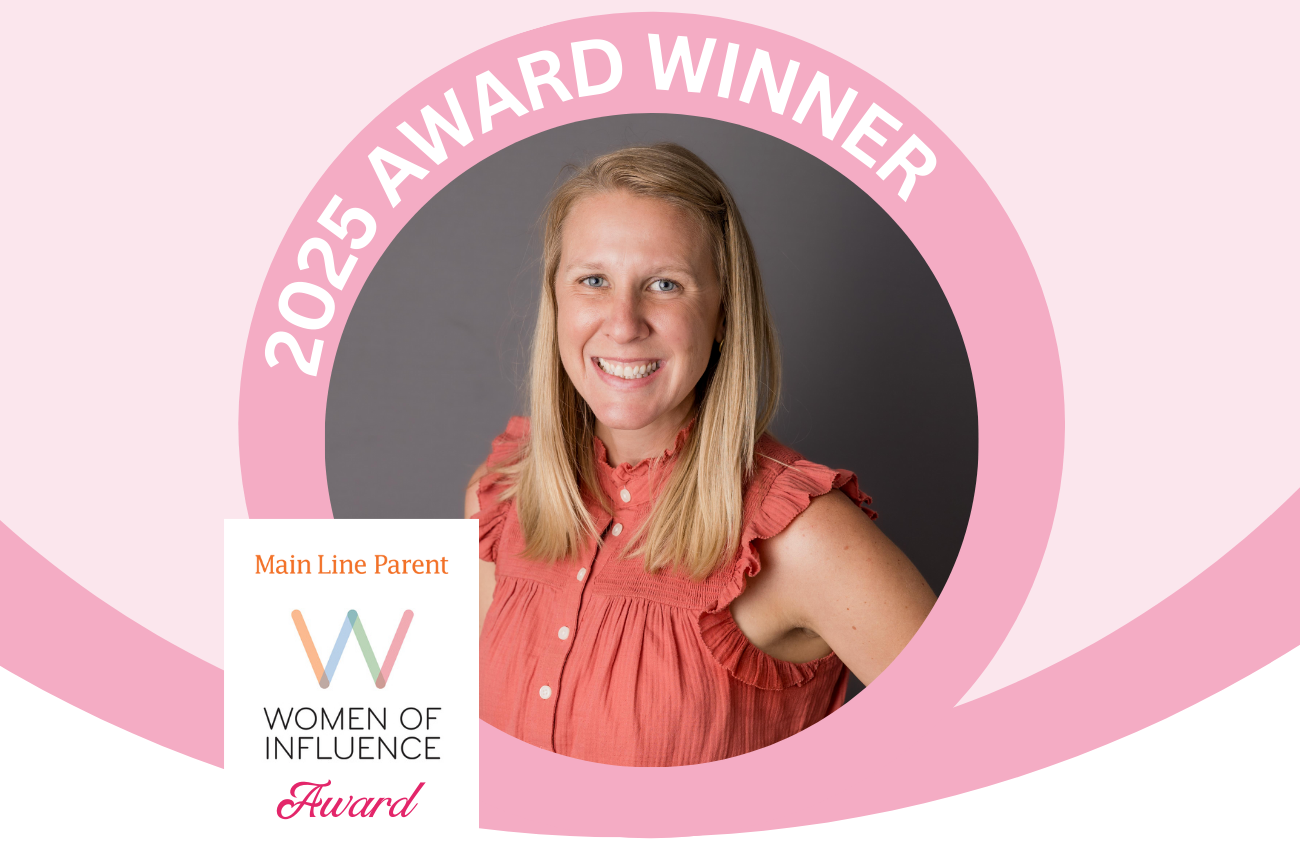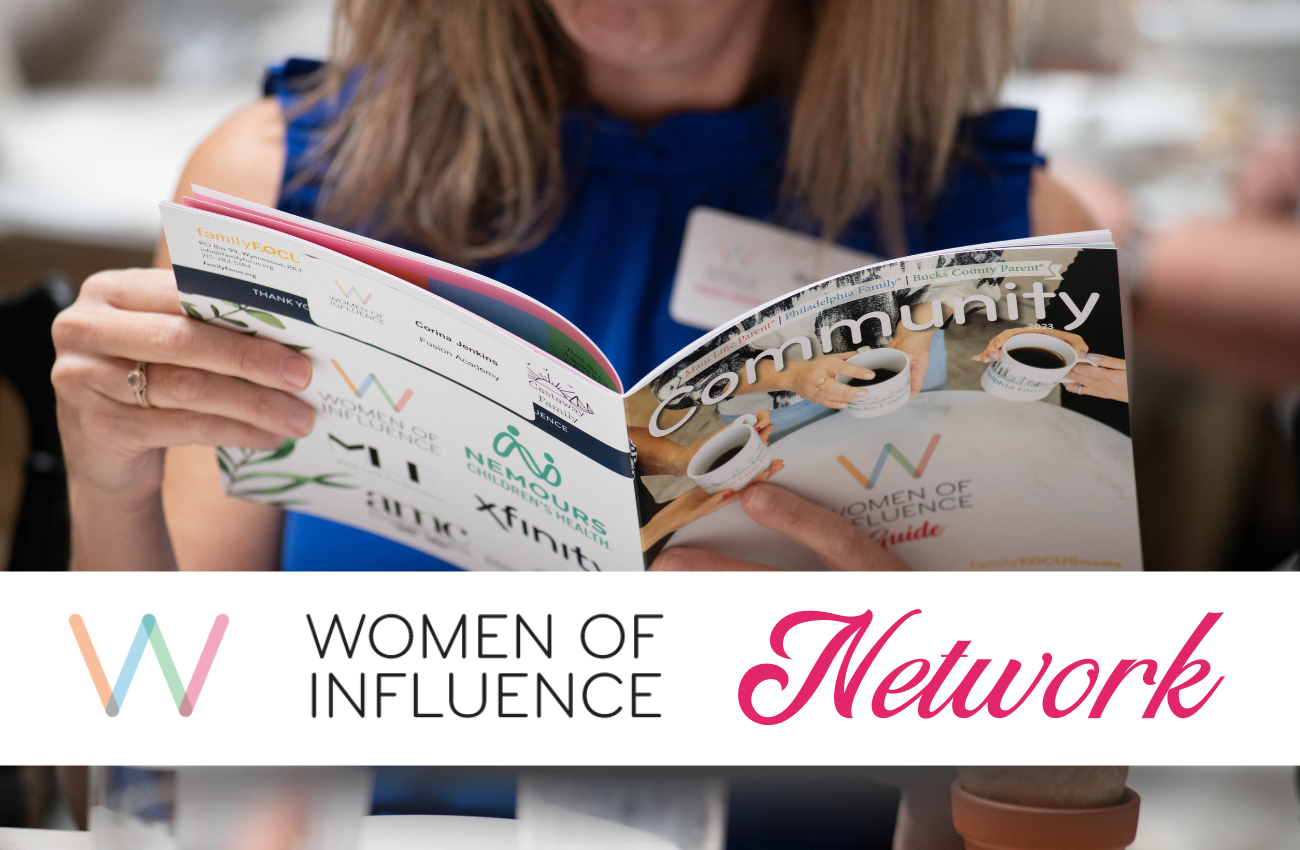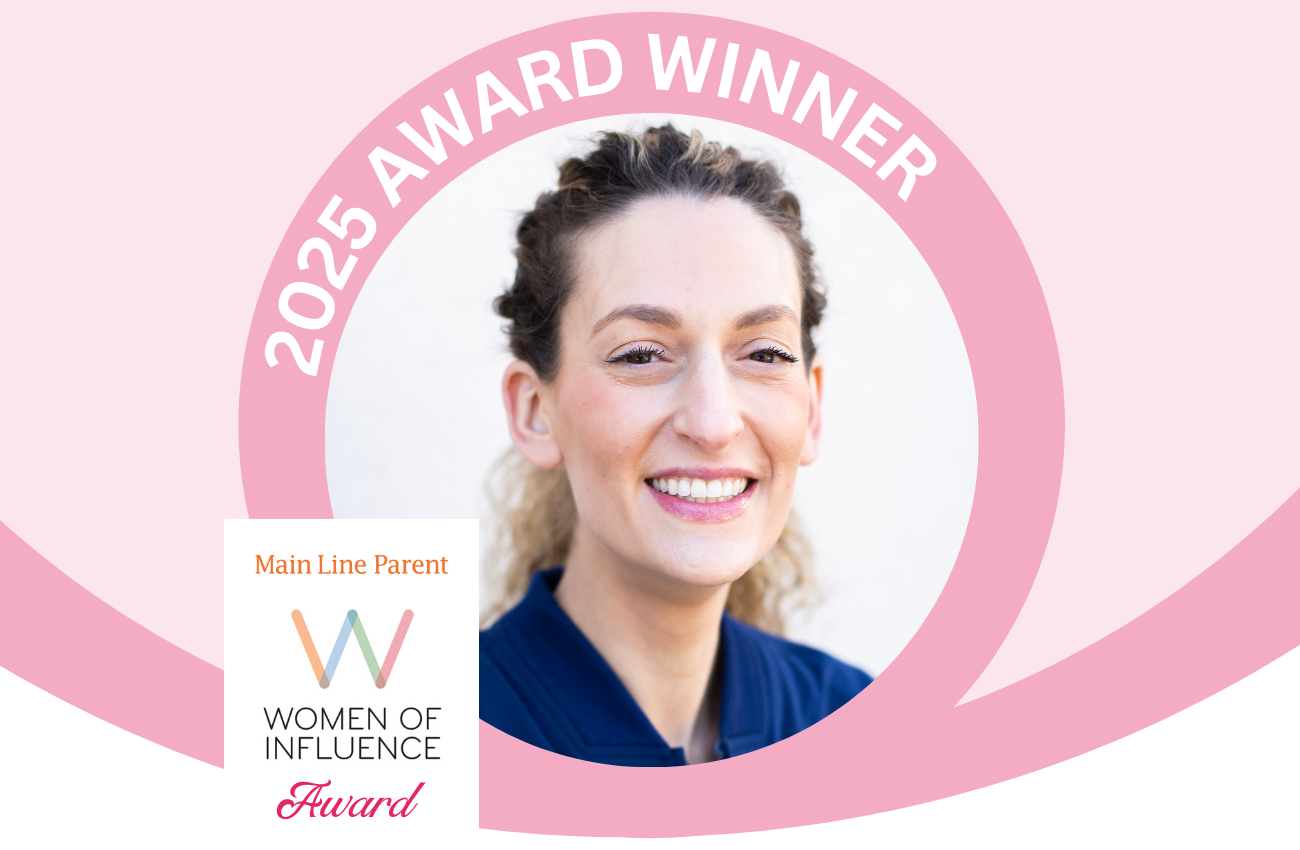Johanna Kulp: From Personal Recovery to Professional Mission—A Therapist’s Journey to Help Women Find Body Freedom
When Johanna Kulp realized she could experience true freedom from body image struggles, her first thought wasn't relief—it was determination that other women deserved to feel the same way.

Johanna Kulp has built an empire of healing from a simple but powerful realization: every woman deserves to feel alive and connected in her own body. As founder and co-owner of Live Well Therapy Associates in Narberth, author of “Finding Peace with Your Body: A Body Image Guide for Women,” and an active community volunteer organizing her children’s school fundraisers, Kulp has transformed her personal recovery journey into a multifaceted mission that’s touching hundreds of lives across the Main Line and beyond.
Johanna Kulp is a 2025 Main Line Parent Women of Influence Award Winner
Main Line Parent’s Women of Influence Awards celebrate exceptional women making significant impacts in our community. Johanna was nominated by her friend, Jamie Hawthorn, and selected based on her achievements and dedication to creating positive change in her community. Each Women of Influence Award Winner has committed to support Family Focus Media’s core values. Together, we are committed to foster a sense of belonging and empowerment for all families. All backgrounds, races, genders, and sexual orientations are welcome and safe with us.
Beyond the awards, our Women of Influence Luncheons and Speed Networking Night attendees come together as our Women of Influence Network, a community fostering connections, collaboration, and mutual support.
The Moment Everything Changed
Kulp’s advocacy didn’t begin in a classroom—it grew from deeply personal experiences with eating disorders and body image struggles that started in childhood. But the pivotal moment that shaped her professional mission came during her own recovery process.
“I think the moment that I felt some sense of freedom, I realized that I really wanted women to be able to experience that themselves,” Kulp explains. “When I got to a place of realizing I don’t have to live every waking moment feeling negative with myself or feeling like I have to do something certain in order to feel okay—when I felt more alive in myself—I was like, I want other people to have this too. This is not just for me.”
That realization propelled her to become a psychotherapist, gaining experience at prestigious institutions including The Renfrew Center and the University of Pennsylvania Counseling Center before taking the entrepreneurial leap to co-found her own practice.
Building Something Different
When Kulp and her business partner launched Live Well Therapy Associates in 2011, they started with a dream, two therapists, and a tiny office they renovated themselves—complete with a makeshift air system that was literally “a hole in the wall that blew air in.” Today, their practice has grown to include nine therapists serving hundreds of clients weekly from a full building in Narberth.
The numbers tell part of the story, but what makes Live Well unique is its philosophy. Both founders had worked at a major eating disorder treatment center in the region and, while effective, found themselves constrained by insurance mandates and corporate policies that didn’t always serve individual client needs.
“What we’ve aspired to build and what we really have built is a therapy center that meets the individual with where the individual is at,” Kulp explains. “If somebody needs multiple sessions a week, we have the autonomy to reduce our fee and bring people in more. If they need to be going out for lunch and working on a meal together, we get to do that.”
This client-first approach extends to financial flexibility. During a recent supervision meeting, when a therapist mentioned a client whose husband had lost his job, the response was immediate: “Slide the scale—we’ll make sure that we can get that person in for treatment in the way that they need.”
Balancing Vulnerability and Professional Boundaries
Publishing “Finding Peace with Your Body” in February 2025 required a different kind of courage—putting her personal story into the world while maintaining appropriate therapeutic boundaries with clients.
“I am really careful when a client is sitting in front of me that the only time there’s a self-disclosure is if it is in a way that is uplifting to the person that I’m working with,” Kulp notes. “That self-disclosure can be used for them, not taking up space just for the sake of taking up space for me, but something that’s going to be beneficial to them.”
The vulnerability has paid off. Readers have reached out with messages saying they didn’t realize anyone else experienced similar struggles with body image—a response that surprised Kulp, who assumed most women shared these experiences.
“I think because it has such a level of embarrassment—body image issues and feeling low about your body—a lot of women experience it but feel embarrassed by it,” she reflects. “They think, ‘If I just could diet right or make my stomach look this way, then I’ll feel better,’ rather than understanding that there is this pervasive culture that a lot of women live in where they just never feel like their body is measuring up.”
Real Stories of Transformation
The impact of Kulp’s approach becomes clear in the stories of transformation she witnesses. One particularly powerful example involved a middle-aged woman who had been chronically dieting since age 12, keeping detailed books with calorie counts for decades.
“She could bring me multiple books—she had almost every day of food written down,” Kulp recalls. “The more that she’d done this, the more that she hated herself.”
After two to three years of work with Kulp and a dietitian, the transformation was remarkable. The woman burned her diet books, developed an intuitive relationship with food and her body, and now participates in triathlons—not from a place of self-hatred, but because she feels powerful and strong.
“She doesn’t even know her weight. She feels really strong about herself, feels powerful,” Kulp says. “A lot of that was just her letting go of a long rhetoric of being told that her body wasn’t good enough and she had to change it in order to feel good. Instead, she was able to center her body and connection with her body and enjoyment of her body as the goal.”
Educating the Next Generation
Kulp’s community impact extends into local schools, where she speaks to health classes about body image. Her favorite teaching moments involve the body image timeline—showing how beauty ideals have shifted throughout history—and witnessing students’ “aha” moments.
“The girls get to understand to a greater degree how social media starts to impact what they feel about their bodies,” she explains. “A bunch of them raise their hands and are like, ‘Oh my word, it’s like when there was that whole thing about legging legs going around, telling us how our legs had to look,’ or ‘It’s like what Kim Kardashian has done.'”
These sessions help younger generations recognize that much of what they see on social media is actually “selling them stuff off of their discontent” and teaches them to change their algorithms and perspective.
Community Leadership in Action
Beyond her professional work, Kulp actively volunteers in ways that align with her mission. As a Girl Scout troop leader, she’s taught sessions on entrepreneurship and building each other up. Currently, she’s organizing her local elementary school’s 5K/1-mile fun run fundraiser, which raised approximately $8,000 to support after-school programming, new playground equipment, and teacher appreciation efforts.
“My favorite thing is when one kid said, ‘This is my first race I’ve ever run myself,'” Kulp shares. The event exemplifies her philosophy: teaching children to feel excited and confident about what their bodies can do, rather than focusing on appearance.
Changing the Conversation
Kulp envisions a fundamental shift in how communities discuss bodies and health. Instead of language focused on control and restriction, she advocates for conversations centered on what bodies need to feel strong.
“I want all the language to be like, ‘How do you feel today and what do you need today?’ Whether that’s to go do a really intense exercise class or take a rest day. I want it to be, ‘What’s going to feel good to your body right now?'”
This philosophy extends to her approach with clients and her broader community impact, always asking what will make someone feel connected and alive in their body rather than focused on changing or controlling it.
Looking Forward
Kulp is already considering her next project: a second book focused on helping parents raise children who feel connected, alive, and strong in their bodies. The idea stems from the overwhelming response to her social media content about parenting and body image.
“How do we raise a generation of children that are connected to their bodies, that are alive in their bodies, that feel strong in their bodies?” she asks. “If they’re getting a lot of negative messages and outside influences, how do we handle that?”
As Live Well Therapy Associates prepares to move into its new full building space, Kulp remains focused on her core mission: helping women feel strong and alive in themselves. Whether working with a 12-year-old struggling with social media pressures or a middle-aged woman ready to throw away decades of diet books, her approach remains consistent—meeting people where they are and helping them find their own path to body freedom.
“My life’s mission is to help people, especially women, feel strong and alive in themselves,” Kulp says. “Anything that I can do to help move that needle, I’m excited to do.”
From a tiny office with a hole in the wall to a thriving practice serving hundreds, from personal recovery to published author, Kulp’s journey illustrates how individual healing can spark community transformation. Her work is more than therapy—it’s a movement toward a culture where women stop fighting their bodies and start celebrating their strength.





